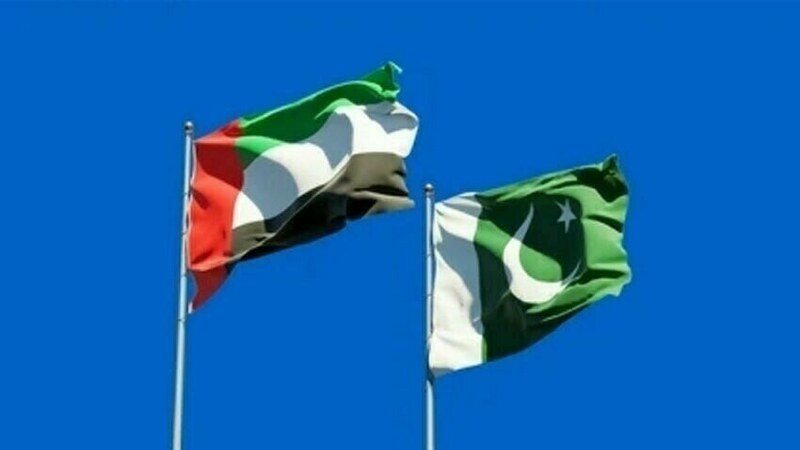ISLAMABAD: Pakistan and the United Arab Emirates on Thursday reaffirmed their commitment to strengthening strategic and economic cooperation, as the UAE announced that it is now processing nearly 500 visas daily for Pakistani nationals.
The commitments were made during a meeting between Salem M. Salem Al Bawab Al Zaabi, the newly appointed UAE Ambassador to Pakistan, and Muhammad Aurangzeb, Federal Minister for Finance and Revenue, here on Thursday.
The meeting also touched upon defence cooperation, military training exchanges, and longstanding security collaboration, with Ambassador Al Zaabi expressing a strong commitment to deepening defence ties.
Ambassador Al Zaabi, who recently assumed office, praised the warm reception he has received in Pakistan and highlighted the “deep historical linkages” between the two nations. He noted the deep historical linkages between the peoples of Pakistan and the UAE, highlighting the longstanding contributions of Pakistani professionals across sectors in the UAE, including banking, finance, defence, and public administration. He underscored that strengthening bilateral ties, particularly in strategic, economic, and cultural dimensions, would be a key priority of his tenure.
Aurangzeb welcomed the Ambassador and reaffirmed Pakistan’s commitment to further deepening its fraternal partnership with the UAE. He acknowledged the UAE’s consistent support to Pakistan across multiple fronts, including trade, investment, remittances, government-to-government financing, and the UAE’s crucial backing in Pakistan’s engagements with international financial institutions. He further noted the frequent high-level interactions between the leadership of both countries as a testament to their close and enduring ties.
The minister emphasised that Pakistan’s economic policy direction is firmly oriented toward expanding trade and attracting long-term investment, moving beyond traditional support mechanisms. He appreciated ongoing UAE investments in key sectors such as ports, digital banking, logistics, and infrastructure and encouraged further participation from UAE sovereign funds, private sector entities, and multinational corporations. He highlighted Pakistan’s significant potential in IT, AI, fintech, agriculture, minerals, logistics, and higher education collaboration.
Ambassador Al Zaabi informed the Minister that expanding economic cooperation remains one of his foremost objectives. He expressed the UAE’s strong interest in enhancing bilateral trade volumes, attracting Pakistani businesses and technology firms to the UAE, and bringing more UAE investors to Pakistan. He referenced ongoing engagement with companies in sectors including agriculture, infrastructure, mining, ports, financial services, and virtual assets.
The Ambassador also briefed the Minister on the UAE government’s major reforms in visa facilitation for Pakistani nationals. He stated that nearly 500 visas are being processed daily and explained that new measures, including online visa processing, e-visas without passport stamping, and enhanced system-to-system linkages with relevant Pakistani authorities, are being implemented to further streamline travel for businesspersons and visitors. A dedicated UAE visa centre, newly opened in Pakistan, will also help expedite processing.
Senator Aurangzeb welcomed these developments, noting that smoother mobility is crucial for strengthening business-to-business exchanges, especially given the UAE’s position as a global hub for investment, trade shows, and technology exhibitions.
The meeting also touched upon ongoing defence cooperation, training exchanges, and historical military collaboration between the two countries, with Ambassador Al Zaabi expressing a strong commitment to further enhancing it during his tenure as ambassador.
The Finance Minister briefed the Ambassador on Pakistan’s improving macroeconomic indicators, including stable foreign exchange reserves, declining inflation, a stronger currency outlook, and increased remittances, particularly from the UAE. He highlighted that Pakistan is now moving toward a growth-focused agenda centred private-sector-led and investment-driven expansion.
Both sides reaffirmed their resolve to deepen cooperation across all areas of mutual interest, particularly trade, investment, finance, technology, defence, and people-to-people exchanges. They agreed to continue working closely to leverage the immense potential that exists between the two brotherly nations.
Copyright Business Recorder, 2025


